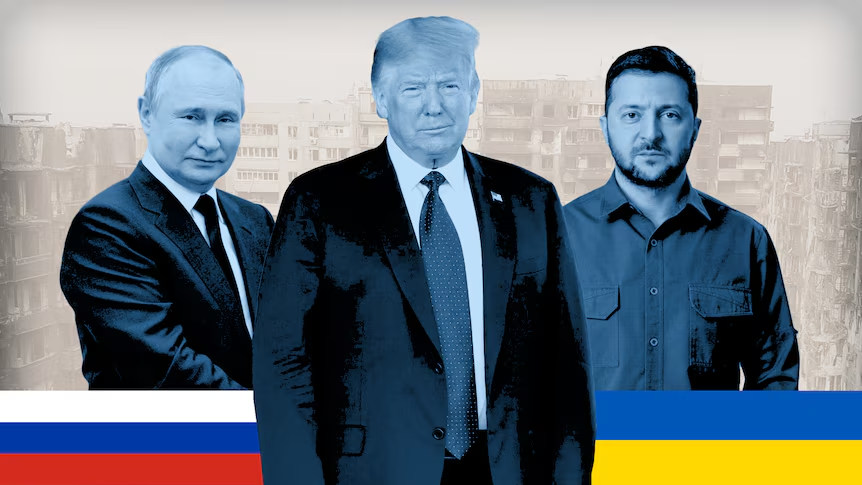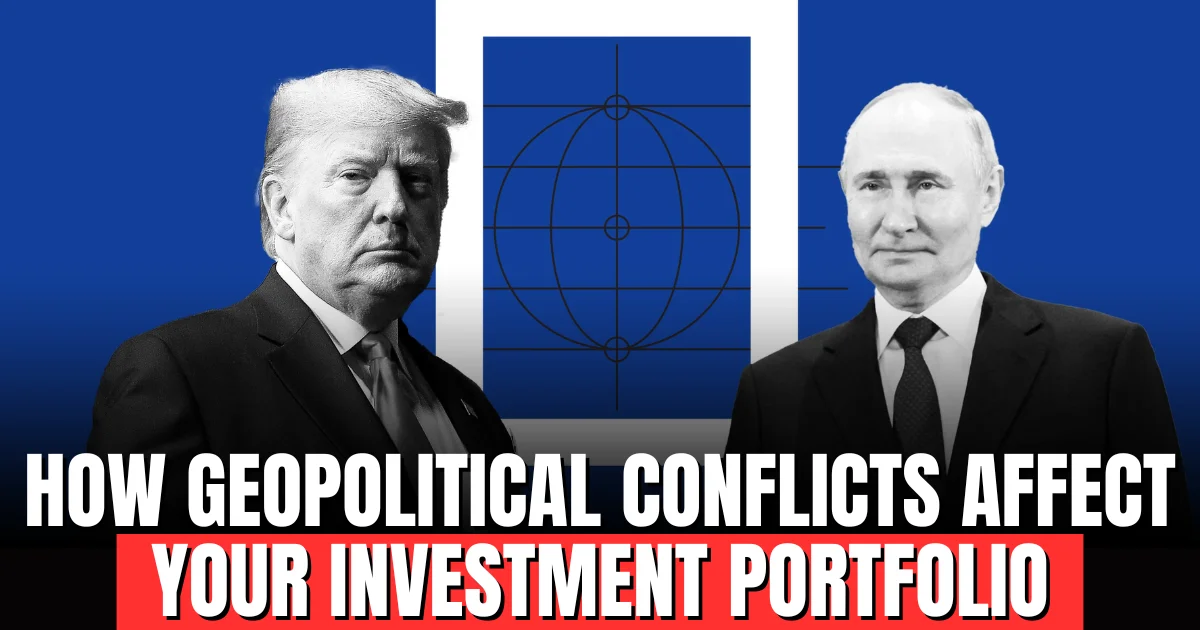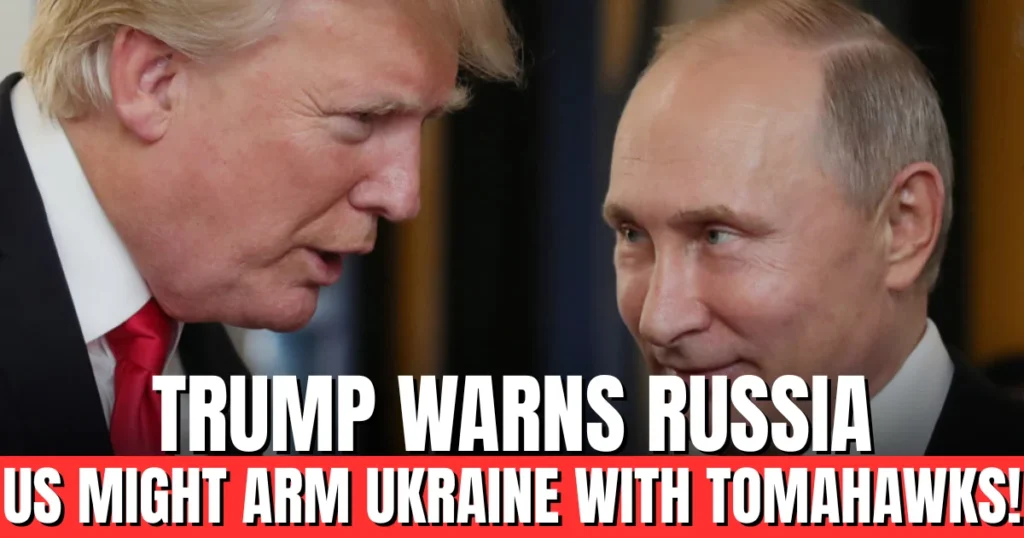Learn how Ukraine-Russia tensions impact stocks, bonds, and commodities. Expert strategies to protect your investments during geopolitical uncertainty.
Table of Contents
How Geopolitical Conflicts Affect Your Investment Portfolio in 2025
Introduction:
Geopolitical conflicts like the ongoing Russia-Ukraine tensions create significant ripple effects across global financial markets. As President Trump considers escalating US military support to Ukraine with advanced weapons systems, investors face critical decisions about protecting and positioning their investment portfolios during periods of international uncertainty.
Understanding how geopolitical risk affects different asset classes helps you make informed decisions. Whether you’re planning for retirement, building wealth, or protecting existing assets, geopolitical events require strategic portfolio adjustments.
This comprehensive guide examines the investment implications of international conflicts and provides actionable strategies to safeguard your financial future.

Understanding Geopolitical Risk in Investment Markets
Geopolitical risk refers to political events, international tensions, and military conflicts that create market volatility and economic uncertainty. These events disrupt normal market patterns and create both risks and opportunities for investors.
Key geopolitical factors affecting markets include:
- Military escalations and conflict zones
- International sanctions and trade restrictions
- Energy supply disruptions
- Currency fluctuations and monetary policy responses
- Shifts in global alliances and trading partnerships
Investment portfolio management during these periods requires understanding which assets typically benefit and which face headwinds during international crises.
Asset Classes Most Affected by International Tensions
Different investment types respond uniquely to geopolitical developments. Strategic asset allocation during crisis periods can protect wealth and potentially generate returns.
Defense and Aerospace Stocks
Defense contractor stocks historically rally during military escalations. Companies producing weapons systems, military technology, and defense infrastructure often see increased government contracts.
Major defense stocks typically increase 8-15% during sustained conflict periods as governments expand military budgets and accelerate procurement timelines.
Energy and Commodity Markets
Oil prices frequently spike during geopolitical tensions, particularly conflicts involving major energy-producing regions. Natural gas, petroleum, and alternative energy investments see increased volatility.
Commodity prices for precious metals, agricultural products, and industrial materials also fluctuate based on supply chain disruptions and safe-haven demand.
Safe Haven Assets
Traditional safe-haven investments attract capital during uncertainty:
- Gold and Precious Metals – Historical inflation and crisis hedge
- US Treasury Bonds – Government-backed security
- Swiss Franc and Japanese Yen – Stable currency alternatives
- High-Grade Corporate Bonds – Income with relative safety
- Dividend Aristocrat Stocks – Established companies with consistent returns

Investment Strategy During Geopolitical Uncertainty
Professional financial advisors recommend specific approaches when international tensions escalate.
Diversification as Primary Defense
Portfolio diversification remains the cornerstone of risk management strategies. Spreading investments across uncorrelated asset classes reduces exposure to any single geopolitical event.
Recommended allocation during uncertainty:
- 40% Domestic equities (focus on defensive sectors)
- 25% International diversified funds (avoiding conflict regions)
- 20% Fixed income securities (government and high-grade corporate)
- 10% Commodities and precious metals
- 5% Cash equivalents (liquidity for opportunities)
Sector Rotation Strategies
Smart investors rotate into defensive sectors during geopolitical stress:
Defensive sectors that outperform:
- Utilities (essential services with stable demand)
- Consumer staples (necessary products regardless of conditions)
- Healthcare (non-discretionary medical services)
- Telecommunications (critical infrastructure)
Cyclical sectors to reduce:
- Luxury consumer goods
- International travel and hospitality
- Emerging market exposure
- High-growth technology (valuation compression risk)

How to Protect Your Retirement Portfolio
Retirement portfolio planning requires special attention during international crises since recovery time may be limited for near-retirees.
Protection strategies include:
- Rebalance to age-appropriate risk levels – Ensure stock/bond allocation matches retirement timeline
- Increase quality over yield – Prioritize investment-grade securities over high-yield alternatives
- Maintain adequate cash reserves – 12-24 months expenses prevents forced selling
- Review beneficiary designations – Ensure estate planning remains current
- Consider annuity products – Guaranteed income regardless of market conditions
Financial planning services can help assess your specific situation and adjust retirement strategies accordingly.
Real Market Impact: Historical Examples
Historical data demonstrates measurable investment impacts from geopolitical events:
| Event | Initial Market Drop | Recovery Time | Sector Winners |
|---|---|---|---|
| Gulf War 1991 | -18% (S&P 500) | 6 months | Defense, Energy |
| 9/11 Attacks | -12% (immediate) | 9 months | Security, Defense |
| Crimea Annexation 2014 | -6% (European markets) | 4 months | US Treasuries, Gold |
| COVID-19 2020 | -34% (S&P 500) | 5 months | Tech, Healthcare |
Understanding these patterns helps investors avoid panic selling and identify strategic opportunities during temporary dislocations.
Working with Financial Advisory Services

Complex geopolitical environments make professional financial advisor services increasingly valuable. Certified financial planners provide personalized investment risk assessment and portfolio risk analysis tailored to your specific situation.
What financial advisors offer during uncertainty:
- Comprehensive portfolio review and rebalancing
- Tax-loss harvesting opportunities
- Alternative investment strategies
- Insurance and asset protection planning
- Behavioral coaching to avoid emotional decisions
Wealth management services typically charge 0.5-1.5% of assets under management but can save significantly more through strategic positioning and tax efficiency.
Opportunities in Crisis Markets
While geopolitical conflicts create risks, they also generate investment opportunities for prepared investors with proper risk tolerance.
Potential opportunity areas:
Defense contractors – Companies with existing government contracts and proven delivery records
Cybersecurity firms – Increased demand for national security technology
Energy independence plays – Domestic production benefits from supply disruptions
Precious metals – Traditional hedges against uncertainty and currency debasement
Infrastructure companies – Government spending on critical systems
Diversified investment strategy should include small allocations to these sectors for potential upside while maintaining overall portfolio balance.
When to Adjust Your Investment Portfolio
Timing portfolio adjustments requires balancing protection against overreacting to headlines.
Consider rebalancing when:
- Your portfolio drifts 5%+ from target allocation
- Risk tolerance changes due to life events
- Market volatility exceeds your comfort level
- New information materially changes long-term outlook
- Tax advantages present (harvest losses, defer gains)
Avoid emotional reactions to daily news cycles. Asset allocation during crisis should follow predetermined rules rather than fear-based decisions.
Insurance and Asset Protection Considerations
Beyond investment adjustments, comprehensive financial planning includes insurance and legal protection strategies.
Relevant protection mechanisms:
- Variable annuities with downside protection riders
- Long-term care insurance (healthcare cost inflation)
- Umbrella liability policies (asset protection)
- Estate planning updates (transfer strategies)
- Business interruption insurance (for business owners)
These tools provide guarantees that pure investment strategies cannot offer, creating comprehensive asset protection strategies.
Frequently Asked Questions.
How do geopolitical conflicts affect stock prices?
Geopolitical conflicts typically create immediate stock market volatility as investors reassess risk. Defense and energy sectors often rise, while international businesses, airlines, and consumer discretionary stocks face pressure. Historical data shows average 5-12% corrections during major escalations, with recovery typically within 6-9 months.
Should I sell my stocks during international tensions?
Financial advisors generally recommend against panic selling during geopolitical events. Historical evidence shows markets recover from geopolitical shocks faster than economic recessions. Instead, review your asset allocation to ensure it matches your risk tolerance and investment timeline.
What are the best safe haven investments during war?
Traditional safe haven assets include US Treasury bonds, gold and precious metals, Swiss francs, and high-quality dividend-paying stocks in defensive sectors. Diversified investment strategies typically allocate 10-20% to safe havens during elevated geopolitical risk periods.
How can I protect my retirement portfolio from geopolitical risk?
Retirement portfolio protection strategies include rebalancing to age-appropriate risk levels, increasing allocation to bonds and cash, investing in defensive sectors, maintaining 12-24 months cash reserves, and considering guaranteed income products like annuities. Consult financial planning services for personalized recommendations.
Do I need a financial advisor during market uncertainty?
While not required, professional financial advisor services provide valuable expertise during volatile periods. Advisors offer objective analysis, prevent emotional decision-making, identify tax optimization opportunities, and create comprehensive plans addressing your specific situation. Many investors benefit from professional guidance during complex geopolitical environments.
Which sectors perform best during international conflicts?
Defense contractors, aerospace companies, cybersecurity firms, energy producers, and precious metals typically outperform during sustained conflicts. However, past performance doesn’t guarantee future results, and proper diversification remains essential for any investment portfolio management strategy.
6. CONCLUSION
Geopolitical conflicts create inevitable market volatility that challenges even experienced investors. The potential escalation in US military support to Ukraine through advanced weapons systems represents just one of many international tensions affecting global markets in 2025.
Successful investment portfolio management during these periods requires disciplined strategy, appropriate diversification, and focus on long-term objectives rather than short-term headlines. Whether through self-directed research or professional financial advisor services, taking proactive steps to review and adjust your portfolio positions you for both protection and opportunity.
Don’t let uncertainty paralyze your financial planning. Review your current asset allocation, assess your risk tolerance honestly, and make strategic adjustments that align with your investment goals.
Ready to optimize your portfolio for geopolitical uncertainty? Consult with a certified financial planner today to create a personalized investment risk assessment and protection strategy.


